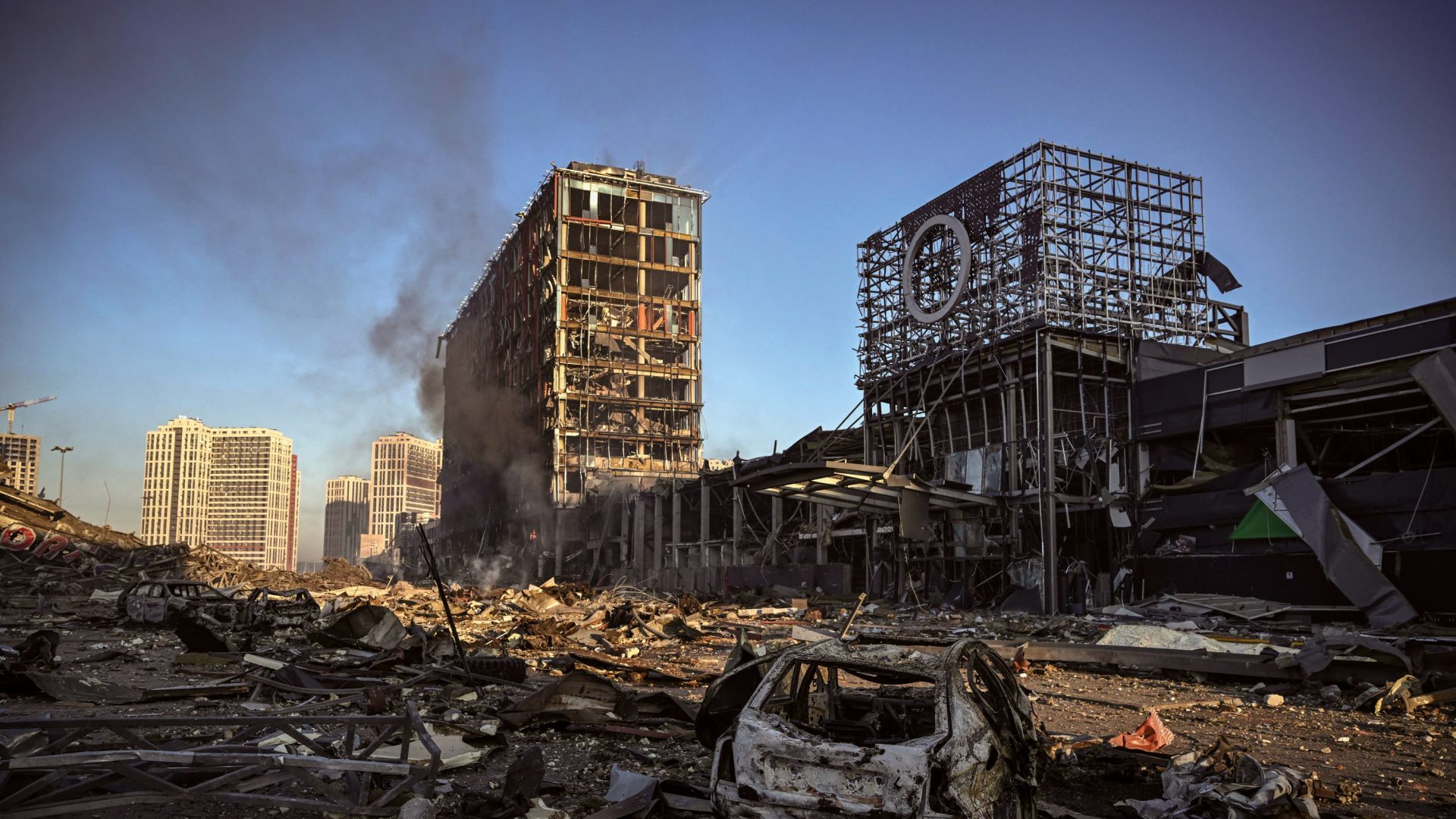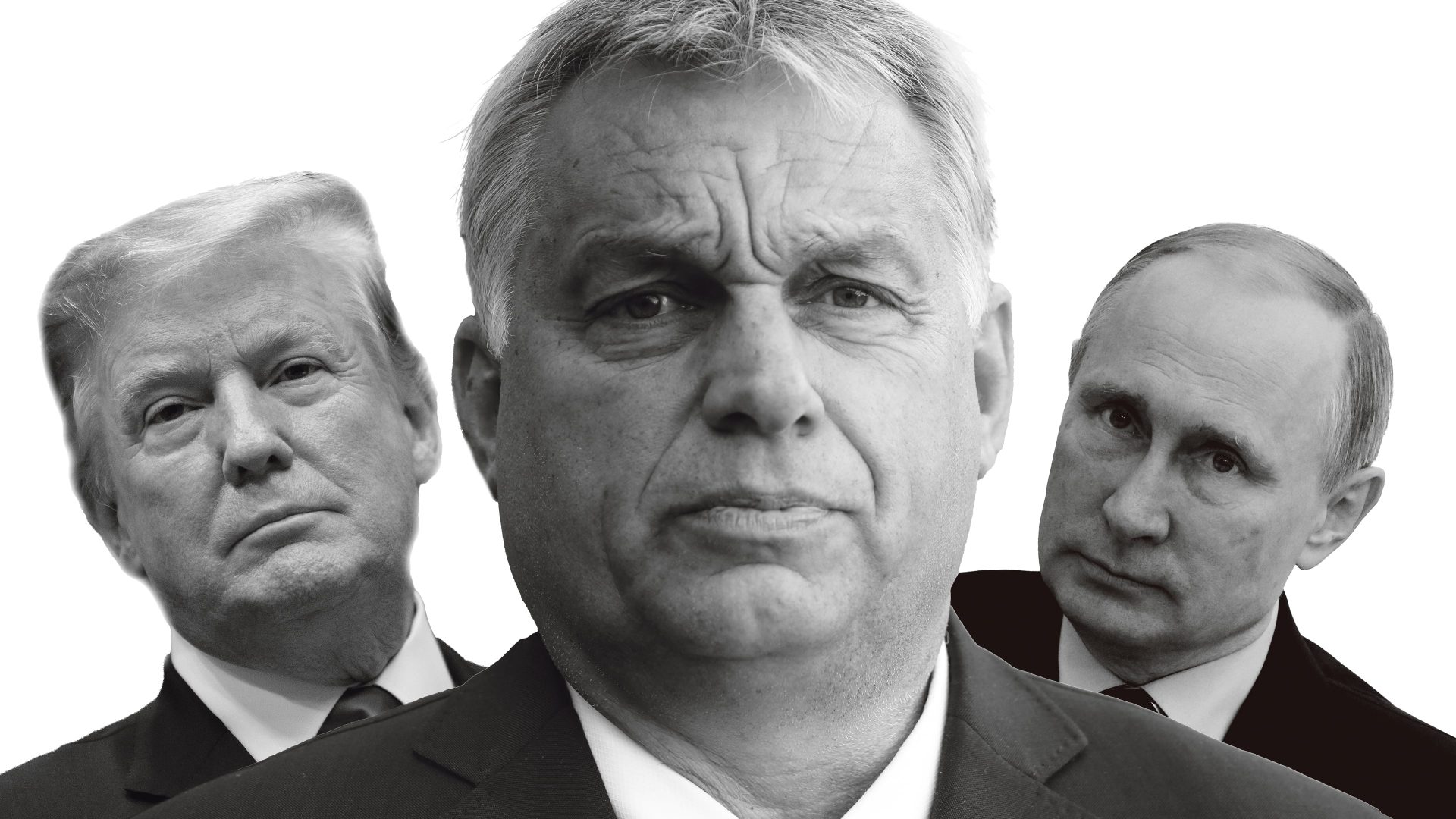“From the ruins of Ukraine, a new Europe is emerging,” writes Lionel Barber (TNE #285). I read these words shortly before watching TV pictures of Boris Johnson standing friendless at the Nato summit.
How much ambition is there for Britain to be part of the leadership of this new Europe? A moment in history will pass us by unless we are careful.
For Johnson this means no more gaffes comparing Ukraine’s struggle to that of Brexiteers’, but more importantly it means no triggering of Article 16 in Northern Ireland and no backsliding in the push to renewable energy which would lessen Putin’s hold on Europe. These last two will require him to hold his nerve against the likes of Steve Baker and Nigel Farage.
Does he have the will to do it? I note with interest the move in recent days for Cabinet ministers to tone down the “UK leading the world” logic and merely note that we are a key player along with the EU and USA.
Stephanie Walker
What Lionel Barber describes is a new stronger Europe, building itself without the isolated little grey island on the side that calls itself Britain, no longer Great, being involved. We’re all big losers now.
Simon Warner
Via Facebook
“Vicious Cycle” (TNE #285), on the plight of young cyclists who are struggling to compete in Europe because of Brexit, reminds us what an utter disaster it has been, especially for young UK citizens. And all manufactured through a grand-scale deception.
Finlay Wells
Via Facebook
Speaking out
John Bercow (Mandrake, TNE #285) defended the rights of the House of Commons against pressure from the Daily Mail among others. So they’ll never forgive him, and will block the progress of the best Mr Speaker of my lifetime by any means within their reach.
Matthew Scott
Via Facebook
Keep it clean
The c-word is seen as misogynistic offensive language by many people, especially women. No matter how appalling we may find someone’s behaviour, by using such disrespectful language (disrespectful to his readers, that is) Alastair Campbell only lowered himself to Paul Dacre’s level in his Diary (TNE #285). Surely someone of his ability can find others ways of expressing himself.
Disappointed Reader
Note to Self
Until I started reading The New European I never used to like Will Self’s work, which to my mind tended towards arrogant self-regard and was full of snide comments in which he looked down on mere mortals. For the last couple of years I have been pleasantly surprised to find that he had some intelligent, interesting and even compassionate things to say.
Sadly, his last two columns have reverted to the old ways. How stupid other people are! They go to the same exhibitions that he goes to, but cannot possibly understand them; and they listen to the same radio programmes, but obviously they, unlike him, are oblivious to the deeper issues. Please remind Will that he is not a superior being.
Fiona Kerlogue
Hook Norton, Oxfordshire
Language lasts
To the instances of Russian rulers attempting to suppress or eradicate the Ukrainian language (“Russia’s push to crush Ukrainian”, TNE #285) instanced by Peter Trudgill could be added the Ems Decree of Tsar Alexander II in 1866. (The “Ems” in the name is that of the German spa town of Bad Ems, where he was at the time.) I understand it banned the use of Ukrainian in printed matter, other than in reprints of old books, and there is a commemorative plaque at the site, placed there about 13 years ago, by a Ukrainian organisation.
Coming to the Soviet period, the encouragement of Ukrainian, alongside other languages of the USSR, was quite strong for well over a decade, with its teaching being extended to the schools as a whole, and it went hand in hand with other features of cultural revival. The policy was referred to by a term that I believe means “establishing roots”. As Peter Trudgill notes, much suppression came under Stalin.
Even that was not of total or permanent effect, though. I remember seeing in the (British) Modern Tramways magazine in 1970, a map of Kyiv accompanying an article of their association’s visit to the city, in both Russian and Ukrainian. Some years later, in the Soviet period, I bought a bilingual tram ticket from Tallinn in Estonia.
Jeff Lewis
Board brush
As a survivor of upper-class childhood neglect and boarding school from age six, I very much welcome the prominence you gave to the issue with Fiona Millar’s excellent, “Eton, we have a problem” (TNE #284). However, as the headline implies, the substantive problem lies in the leading public schools (less than 1% of pupils) and not private day schools (5% of pupils).
I have been campaigning on this issue for 15 years and have come to the conclusion that the blanket approach that lumps all fee-paying education together is not the optimal one for critics. It antagonises a good section of the liberal middle class who are not just motivated by posh status, and who would probably send their kids to non-fee day schools if they were better resourced (Eton is not the metric here since it is still entirely boarding and over-privileged).
We must also now recognise it is the boarding schools that do the real psycho-emotional damage – what has come to be recognised as “boarding school syndrome”. This is due to the rupture of early attachments and then often exposure to bullying and sexual abuse by teachers or peers, which continues despite better safeguarding practice.
Some 27% of the current cabinet are drawn from boarding schools. I submit that it is this interlocking old boy (and it still is mostly) network that is the real problem and not the well-off middle class who mostly want a decent education for their kids.
Simon Partridge
East Finchley, London N2
Abolition of the private sector would give a more level playing field and less excuse for any person to say the system worked against them.
Having attended a private school more than 40 years ago, all I remember is being bullied and scraping A-level passes. This assisted me in getting a professional qualification, but the social and mental scars from schooldays handicapped my confidence and my ability to get on.
My experience and many others belie the narrative that a private school education always provides a ticket for a seamless life. However, I am well aware that many millions of people in the state sector have been thwarted by a cruel education system that needs reform.
David Rimmer
Hertford Heath, Herts
Plan for peace
Paul Mason may be right that “Putin has only one card left” – the nuclear option (TNE #284). But he is surely right that the military doctrine that has kept an uneasy peace since the 1960s – Mutually Assured Destruction or MAD – is now in tatters.
MAD relies on rational behaviour by adversaries. Putin may be rational within his own alternate reality, in which Ukrainians are simply confused Russians. But this nonsense makes it essential to move on from MAD to another doctrine. Let’s call it MAC: “Mutually Assured Co-operation”.
Perhaps MAC already exists in some part of our troubled world? Well, yes, it does. And most readers of The New European are very familiar with it.
The EU arose ultimately from the ashes of the second world war as a peace project designed by Churchill among others to prevent German belligerence. It is a peace project that has grown and grown. Non-EU nations now facing Russian belligerence are keen to become member states as soon as possible.
In a post-Putin world, we shall need to start more peace projects. Russia might decide, as it did 300 years ago, that it is, after all, a European country that wants to join our peace project.
The world would unclench its MAD fist in favour of the open hand of co-operation. Now’s the time to start planning for that. Not least because this would create options for a Russian renaissance.
Martin Yuille
Manchester M20
While doing all possible to depose Putin, what is also required is a “Nuclear Free Future 2 Step”. Step one involves the reduction, then eventual elimination, of nuclear weapons, in a way that gives nuclear nations the confidence to do so.
Jonathan Schell in his book The Abolition explained how to achieve this by what he termed “weaponless deterrence”. He proposed allowing nuclear states to keep the infrastructure to remake nuclear weapons should there be any verified threat of a new nation obtaining nuclear weapons.
This approach will underpin global pressure to halt any aspiring nuclear nation, since such weapons are in the process of being negotiated away.
The second step will be a parallel programme to eliminate the twin threats from nuclear power of nuclear proliferation and possible widespread radioactive pollution induced by the destruction of one or more nuclear power stations during a war or act of terrorism. Once seen as fanciful, events in Ukraine have seen the world wake up to headlines such as “Nuclear catastrophe ‘narrowly’ averted”.
To help fund this transition, money at present earmarked for nuclear power programmes must be diverted to help finance a comprehensive and predominantly decentralised, low-carbon energy system, mostly of renewables and energy efficiency.
Colin Hines
Lidl brutality
Tanit Koch (Germansplaining, TNE #284) is unfortunately wrong in stating that “the only brutal thing about Aldi and Lidl is their cut-price competition”. As far as Lidl is concerned, at least, its effect on the environment could also be described as brutal.
It recently submitted a planning application for a warehouse at Oakdown Farm near Basingstoke which would have entailed the destruction of 67 oaks and three beech trees. Though the trees have now been saved, Lidl has submitted another application for a warehouse about 1km long and 18 metres high, which would have a devastating effect on the landscape and be a major source of light pollution, noise and traffic congestion. I think that could fairly be described as brutal.
Carolyn Beckingham
Lewes
Tanit Koch’s lighthearted articles about Germany have been welcome. However, they seem inappropriate in the context of events in Ukraine.
These have begun a “Zeitenwende”, the beginning of a new era for Germany. Its armed forces have been run down to such an extent that the defence of the country would be impossible in the case of an attack. The result is an increase in military spending that would have been unthinkable five weeks ago. Germany is also totally dependent on Russian energy supplies! The government is searching hard for alternatives.
All rather more serious than Rouladen…
Barbara Marshall
Norwich
Tanit Koch writes: You have a point, Barbara. Thank you for making it.
The debate on how lighthearted one can or should be in times of war is currently going on in every newsroom. My reason for the culinary approach was twofold: there was a lot of writing about Ukraine in the last issue – rightly so. Could there have been more? Of course. But some readers do value a bit of variety and, knowing this, I went for deutsche Küche.
In addition, other authors and I have lately touched on the Zeitenwende. How much of a new era it will eventually be is not yet clear. And not just to me. I was utterly ashamed by German policy towards Ukraine before chancellor Scholz’s speech and I know the difficulty he will have in implementing his new agenda.



